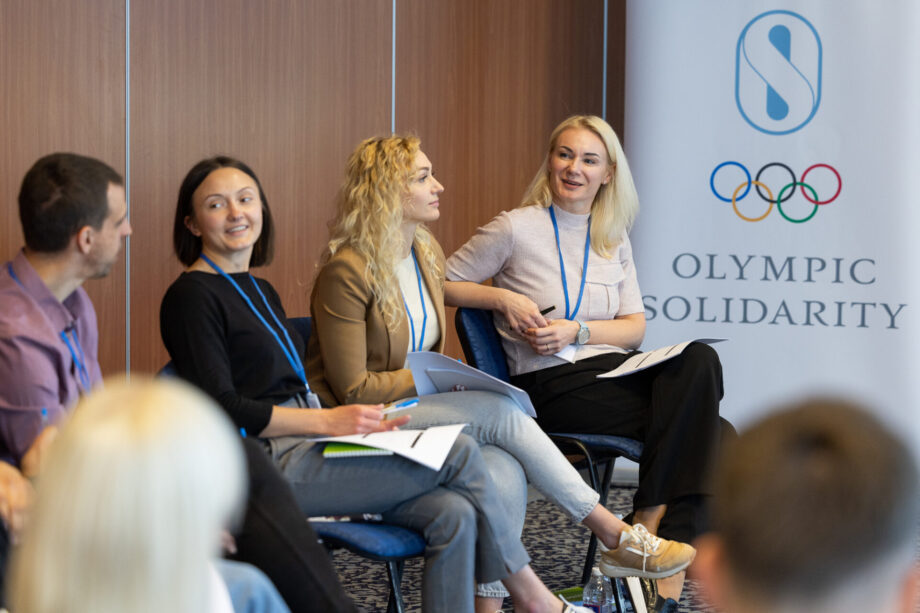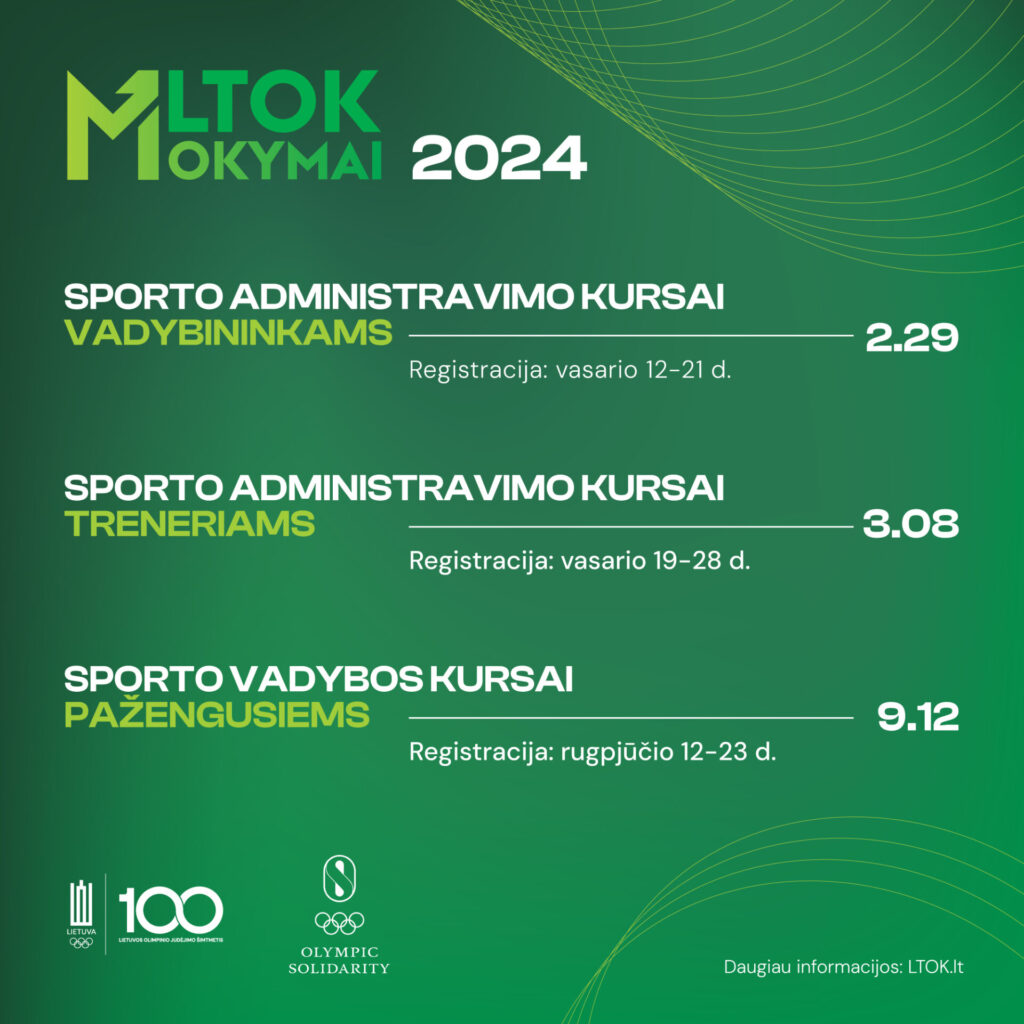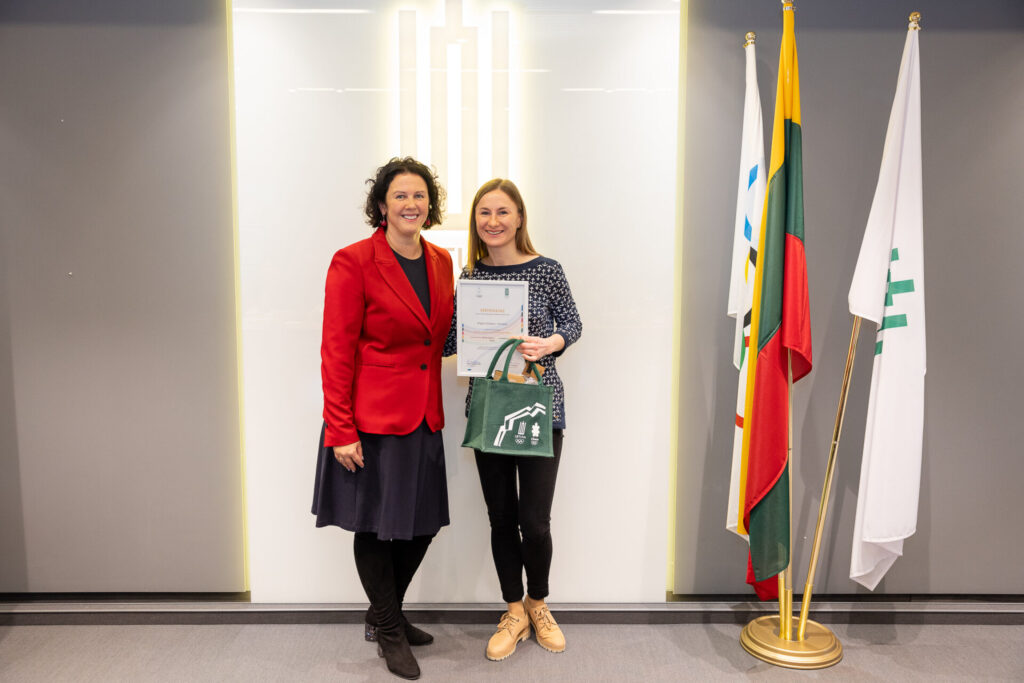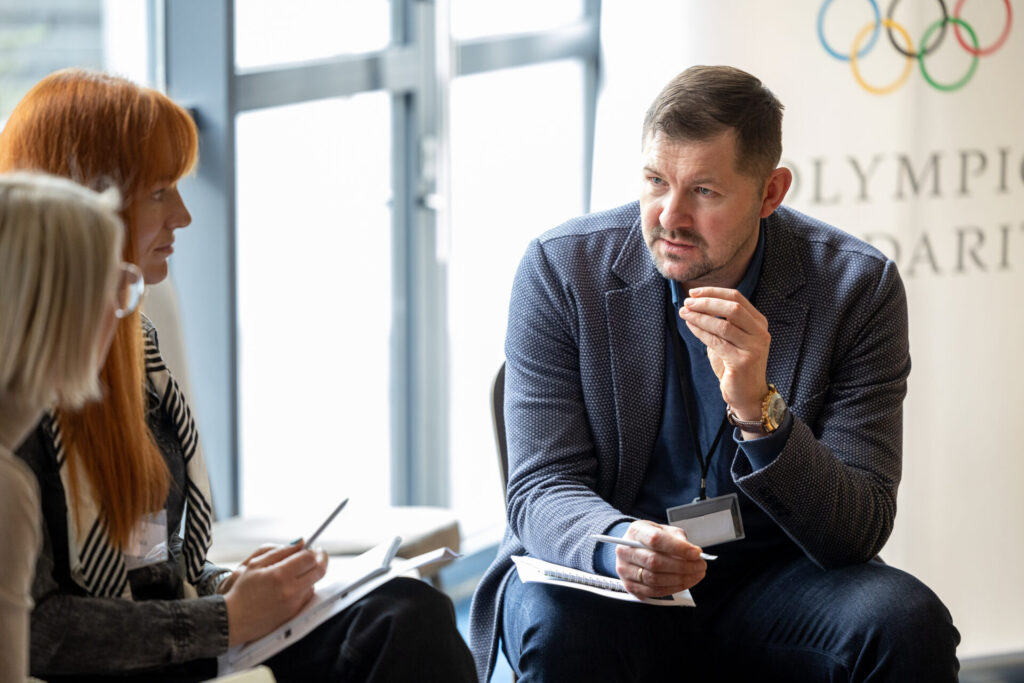LITHUANIAN NATIONAL OLYMPIC COMMITTEE

A common headache for athletes is what they will be doing after they finish their careers, for coaches it is the concern on how to build a team, achieve results and keep their athletes healthy, and administrators’ headache is related to the image of the institution, internal and external communication. The National Olympic Committee of Lithuania (LNOC) seeks to help find the answers to these questions by organising, for five years now, high quality, free training courses that meet global standards.

Šiemet rengiami LTOK mokymai.
“Our training is of a particularly high quality and offers professional lecturers. This year we will be traditionally offering administration training courses: one course for coaches, one for managers, and an advanced sports management course to be held in the autumn. The latter course is particularly in-depth, lasting ten days,” says Agnė Vanagienė, LNOC Deputy Director for Olympic Sport. She is the only one in Lithuania who is certified by the International Olympic Committee (IOC) for conducting such training and has been doing it intensively and systematically for five years.
Only 20 participants are selected for each course, which ensures the quality of the training and the opportunity for the learners to open up and reveal their talents, demonstrate their strengths, socialise and get to know others. “This year’s course will be the fifth one, with yet another group of participants graduating, thus we are slowly expanding our alumni club. The graduates of the advanced course joke about looking forward to a PhD-level training, which would give them another opportunity to meet each other. Jokes aside, 20 people per course (of which there are 3 per year) graduate every year, i.e. the total of 60 graduates a year; it does not seem a hight number, but what matters for us is quality over quantity, and we strive to keep a very high bar,” Agnė Vanagienė explained.

Agnė Vanagienė (left) and Brigita Virbalytė, an Olympian who has completed the LNOC Advanced Sports Administration Course.
The administration training for managers, which starts on the last day of February, is mainly focused on communication. Dominyka Venciūtė, Director of the Business Management and Analytics Programme at the ISM University of Management and Economics, will share her knowledge on image building in social networks. “Our sports organizations are underutilizing this powerful tool,” Agnė Vanagienė admits. Another trainer Lauras Balaiša will mainly focus on internal communication within organisations.
The April training for coaches will focus on the psychological aspects important in team building. “We will try to provoke them, to push them into different awkward situations, so that they see themselves from another perspective, that of the athletes. Other topics include communication and sports medicine, which, to our mind, are very important and relevant topics for coaches. The Lithuanian Federation of Sports Medicine helps by presenting the latest knowledge,” says the organizer of the training.
The LNOC training courses are also distinguishable for aiming to concentrate more on practical knowledge over theory, of which there should a minimum. “We provide the participants with the tools, and it is up to them how much they will use them. We also encourage them to use the IOC’s digital platform Athlete 365, which is a useful tool for athletes, coaches and physiotherapists alike, who can access a range of free training courses via this tool, take tests after completion and get certified if they pass. My colleague Vaida Mačianskienė, the LNOC Director for International Relations, is a certified Athlete 365 instructor, and this year has updated her knowledge based on the latest material. She can successfully train athletes on a wide range of topics. For example, how to draft one’s CV, how to prepare for a job interview, what is relevant when doing sport, etc., the topics that may seem simple at a first glance but are far from that,” says Ms. Vanagienė.
The LNOC is currently working with foreign partners to develop the content of international training courses on sustainability, more efficient and lesser use of resources when organising events, and second careers for athletes.
“We will offer sports federations to organise their own technical training, with the support of the IOC Olympic Solidarity programme. Our role here is more of a facilitator – to generate funds, to provide a supervisory mechanism to maintain the content and quality of training. By organising such training, the federations contribute to the qualification upgrading of their coaches,” Agnė Vanagienė says.

Donatas Slanina, Sports Director of Šiauliai Club, has also completed the LNOC Sports Administration Course.
The project New Miracle, initiated by the LNOC and implemented in cooperation with foreign partners, recently came to an end. The project aimed at promoting women’s leadership in sports organisations and improving their competences. It was funded by the European Commission.
This year, we expect to receive funding for a new project aimed at creating a safe environment for athletes: “Each year, the LNOC chooses strategic topics where it wants to share its expertise with sports federations, managers, coaches or athletes. Together with the other European Olympic Committees, we will submit the new project to the European Commission in March. A safe environment is particularly important when going to major sports events, where there are many dangers that may not be visible to the naked eye. In some cases, acts of violence, bullying, sexual harassment can only be spotted by specially trained people.”